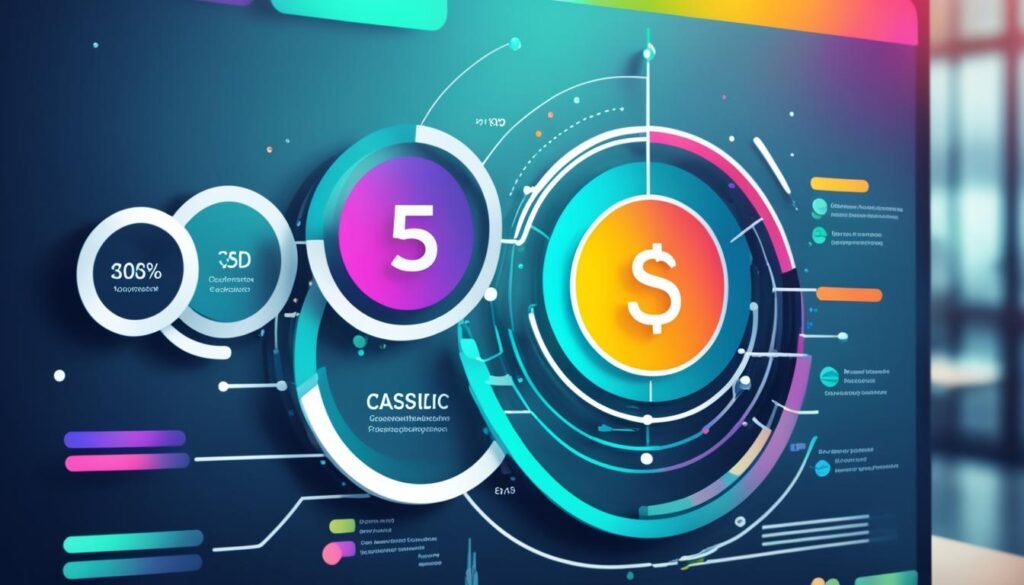As a small business owner, many people noticed that the ERP software can transform everything. It speeds up the processes, helps you to make informed decisions guided by data, and grows the business. In 2024, the best accounting software ERP solutions are going to change how we deal with your money, stock, and supply chain.
Cloud-based accounting platforms are very flexible. Open source variants provide extensive customization. In the constantly evolving world of ERPs, there are a multitude of choices available for both independent entrepreneurs and large companies alike.

This post reviews the top 5 accounting software ERP solutions as of 2024. You will find big names and new innovators in this list. These platforms help in streamline, take wise decisions with data at your side and grow your business.
Key Takeaways
- Brief intro into Enterprise Resource Planning
- What it can be used for
- Feature by feature comparison of the top 5 accounting software ERP solutions
- Understand the unique features, strengths, and limitations of each ERP platform
- Figuring out the best solution which will suit us best
What is Enterprise Resource Planning (ERP) Software?
One of the most critical tools to business success is the ERP software. It helps to execute and automate specific parts of a company. Today, ERP systems are essential to most of businesses around the world, spanning various industries. They exist in two versions, the on-premises and cloud options, and cover all aspects of a business4.
The core of all ERPs are basic tools for financial management, which are used to process the touchstone activities for a company’s finance team: accounting and project management . Cloud-based ERPs support modern technologies, including IoT, blockchain, AI, and machine learning.
This helps businesses to reduce costs and better insights by a significant quantum by adopting ERP. It also increases collaboration, efficiency, and reduces risk with better data and financial control. The shift to cloud-based ERPs helps businesses adapt to new styles of working or changes in the market.
The history of ERP is quite long, and it came into being because of Ford Whitman Harris in the year 1913. Now, it has become important for running businesses. It facilitates data sharing and thereby teams from different departments working in unison4.
“The enterprise resource planning system market was valued at almost $44 billion in 2020 and is projected to reach $117 billion by 2030.”5
What is it used for?
ERP software helps businesses manage many tasks in one place. It covers things like accounting, finance, managing stock, improving supply chains, and more6. This makes it easier for companies to work better together and make smart choices6.
ERP software is perfect for a bunch of things. It helps in managing finance management, stock tracking, production planning, and a lot more. You can also leverage it in order to manage people, projects, and other important business stuff.
With an accounting software you manage finances. It performs automation of duties such as keeping of money, invoicing clients, and keeping payroll. It also assists in report writing and maintaining the records of stock. It can be implemented in any level of a company, regardless of size. There are options are available for different needs.
Cloud-based ERP therefore offers substantive advantages over traditional financial management software. It is less expensive, always up-to-date, more secure, and recoverable in times of disaster. It therefore becomes very ideal for small and medium enterprises that may not have the bandwidth to deal with IT-related matters7.
| Feature | ERP Software | Accounting Software |
|---|---|---|
| Scope | Comprehensive business management, including accounting, inventory, supply chain, and more | Focused on financial management, including bookkeeping, invoicing, and reporting |
| Integration | Seamless integration between various business functions | May require custom integrations with other systems |
| Customization | Highly customizable to fit specific business needs | Customization options may be more limited |
| Cost | Generally more expensive than accounting software | Typically less expensive than ERP software |
| Key Vendors | SAP, Oracle, Microsoft8 | QuickBooks, Sage |
While many people are familiar with the role that accounting software plays, a great portion of them does not know the details of ERP software. It involves controlling piles of business stuff, from money, inventory, to supply chain. Accounting software is more about organizing money for organizations8.

Accounting Software ERP: Evaluating Top Solutions
The best accounting software ERP for your business is what needs to be chosen at wisely. Let’s explore the top offerings:
SAP Business One
Basic Package Pricing: Starts at $3,213 per user/year
Best Suited For: Small to mid-sized enterprises (SMEs) looking for comprehensive business management tools.
Best For: Integrating business processes across financials, sales, customer relationships, and operations.
Ease of Use: Moderate; requires some training but offers extensive support.
Key Features:
- Comprehensive financial management
- Sales and customer management
- Purchasing and inventory control
- Business intelligence and reporting
Disadvantages:
- High initial cost
- Steeper learning curve for non-technical users
Oracle NetSuite
Basic Package Pricing: Starts at $999 per user/month
Best Suited For: Mid-sized to large enterprises seeking a scalable and flexible ERP solution.
Best For: Cloud-based ERP with robust financial management and real-time data analytics.
Ease of Use: User-friendly interface with customizable dashboards.
Key Features:
- Real-time financial and operational insights
- Order and billing management
- Inventory and supply chain management
- Compliance management
Disadvantages:
- Expensive for small businesses
- Customization can be complex
QuickBooks Enterprise
Basic Package Pricing: Starts at $1,340 per year for one user
Best Suited For: Small to mid-sized businesses needing an easy-to-use and affordable accounting solution.
Best For: User-friendly accounting and financial management with industry-specific features.
Ease of Use: Highly intuitive and easy to set up.
Key Features:
- Advanced reporting and financial planning
- Inventory management system
- Payroll management
- Industry-specific solutions
Disadvantages:
- Limited scalability for larger enterprises
- Lacks advanced features compared to larger ERPs
Microsoft Dynamics 365 Business Central
Basic Package Pricing: Starts at $70 per user/month
Best Suited For: Small to mid-sized businesses looking for a flexible cloud-based ERP.
Best For: Integrating with other Microsoft products and providing robust financial management.
Ease of Use: Easy integration with Microsoft ecosystem; moderate learning curve.
Key Features:
- Financial management and accounting
- Supply chain and inventory management
- Project management
- Sales and service management
Disadvantages:
- Limited functionality without additional Microsoft products
- Initial setup can be complex
Sage Intacct
Basic Package Pricing: Starts at $400 per user/month
Best Suited For: Mid-sized businesses and financial professionals requiring detailed financial reporting.
Best For: Core financial management and advanced financial controls.
Ease of Use: User-friendly with an intuitive interface.
Key Features:
- General ledger and accounts payable/receivable
- Order management
- Purchasing and vendor management
- Financial reporting and dashboards
Disadvantages:
- Higher cost for additional modules
- May require additional integration tools
For 2024, Oracle NetSuite would be the top choice as an overall ERP solution due to its comprehensive features, scalability, and real-time insights, making it ideal for mid-sized to large enterprises. QuickBooks Enterprise and Microsoft Dynamics 365 Business Central offer excellent options for smaller businesses due to their affordability and ease of use. For those requiring advanced financial reporting, Sage Intacct is a strong contender, while SAP Business One remains a solid choice for businesses seeking robust integration across various operations despite its higher cost and learning curve10.

Conclusion
Best accounting software solutions should help you run your business more rapidly. They will assist you with the data needed to make better decisions and increase business efficiency, among other areas.
No matter how small your business might be, just go and review the leading ERP solutions and choose the best that suits your needs. Properly implemented, it can give you more efficiency, improved collaboration, and a strategic advantage.
Real-time data provided by ERP systems to users helps in the automation of tasks. It also helps in cutting down month-end works, reduces errors, and aids in the financial planning of entities for controlling the cost. It allows your company to be set up upfront for success every damn time, using the benefits of the growing and gaining deep insights in 2024 and beyond.
FAQ
What is Enterprise Resource Planning (ERP) Software?
What are the key use cases for ERP software?
What are the top accounting software ERP solutions in 2024?
Source Links
- The 8 best ERP software options in 2024 | Zapier – https://zapier.com/blog/best-erp-software/
- Top 14 Best ERP Systems in 2024 – Datarails – https://www.datarails.com/top-erp-systems/
- Top 10 ERP Systems for 2024 – https://www.linkedin.com/pulse/top-10-erp-systems-2024-eric-kimberling
- What is ERP? – https://www.oracle.com/erp/what-is-erp/
- What Is an ERP System in Accounting? | Versapay – https://www.versapay.com/resources/erp-system-accounting
- Benefits of Using ERP vs. Accounting Software – https://www.artsyltech.com/blog/erp-software-vs-accounting-software
- ERP (Enterprise Resource Planning) Accounting Software – https://certinia.com/learn/erp/erp-accounting-software/
- ERP vs. accounting software: What are the differences? | TechTarget – https://www.techtarget.com/searcherp/tip/ERP-vs-accounting-software-What-are-the-differences
- 20 of the Best Accounting ERP Solutions to Consider Working With – https://solutionsreview.com/enterprise-resource-planning/best-accounting-erp-solutions-to-consider-working-with/
- The Difference Between ERP and Accounting Software – https://www.artsyltech.com/blog/erp-vs-accounting-software
- ERP vs. Accounting Software – https://www.netsuite.com/portal/resource/articles/accounting/erp-vs-accounting-software.shtml
- ERP vs. Accounting Software: Guide for Optimal Business Growth – https://wezom.com/blog/erp-vs-accounting-software
- Top 5 Reasons to Use an ERP for all of Your Accounting Needs – https://www.geniuserp.com/resources/blog/top-5-reasons-to-use-an-erp-for-all-of-your-accounting-needs